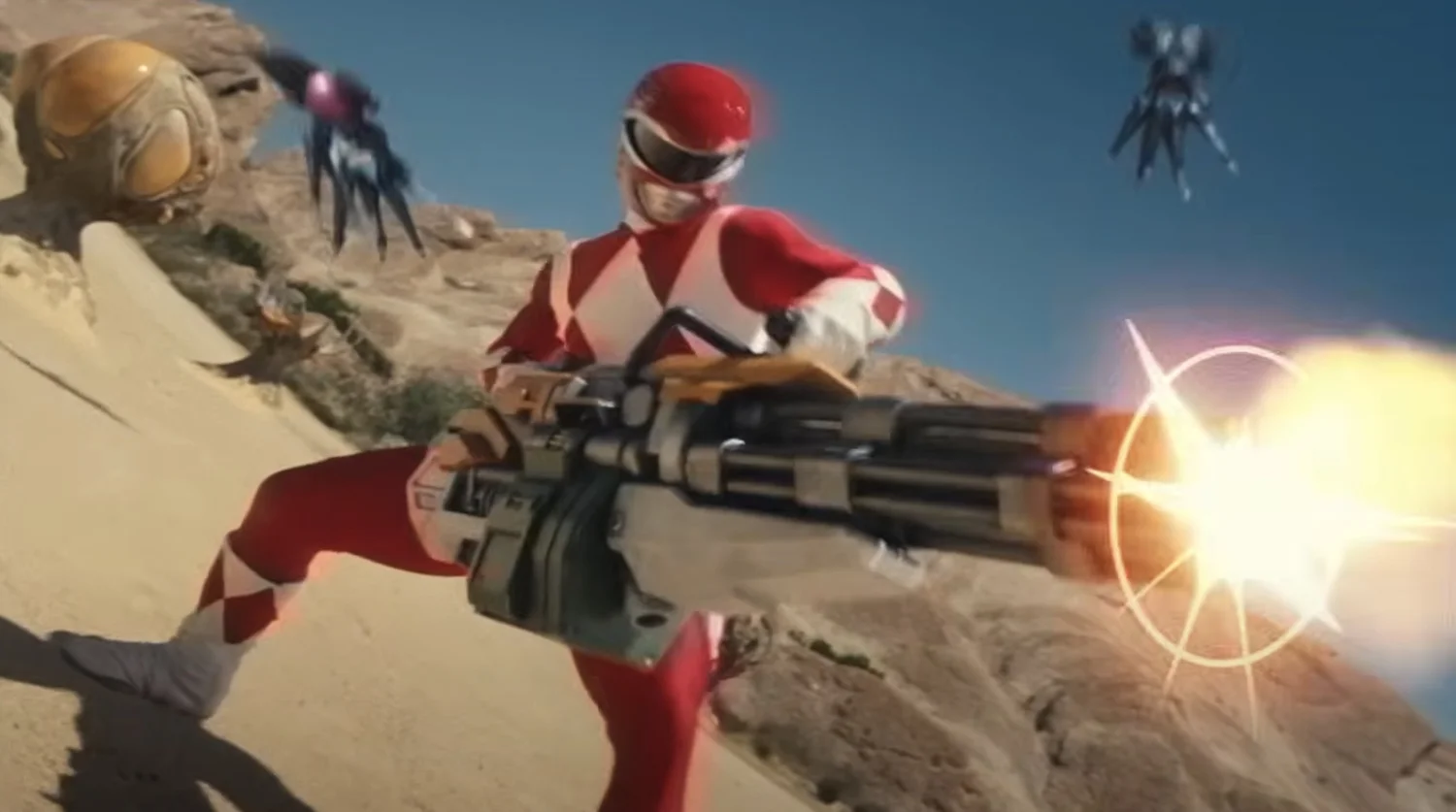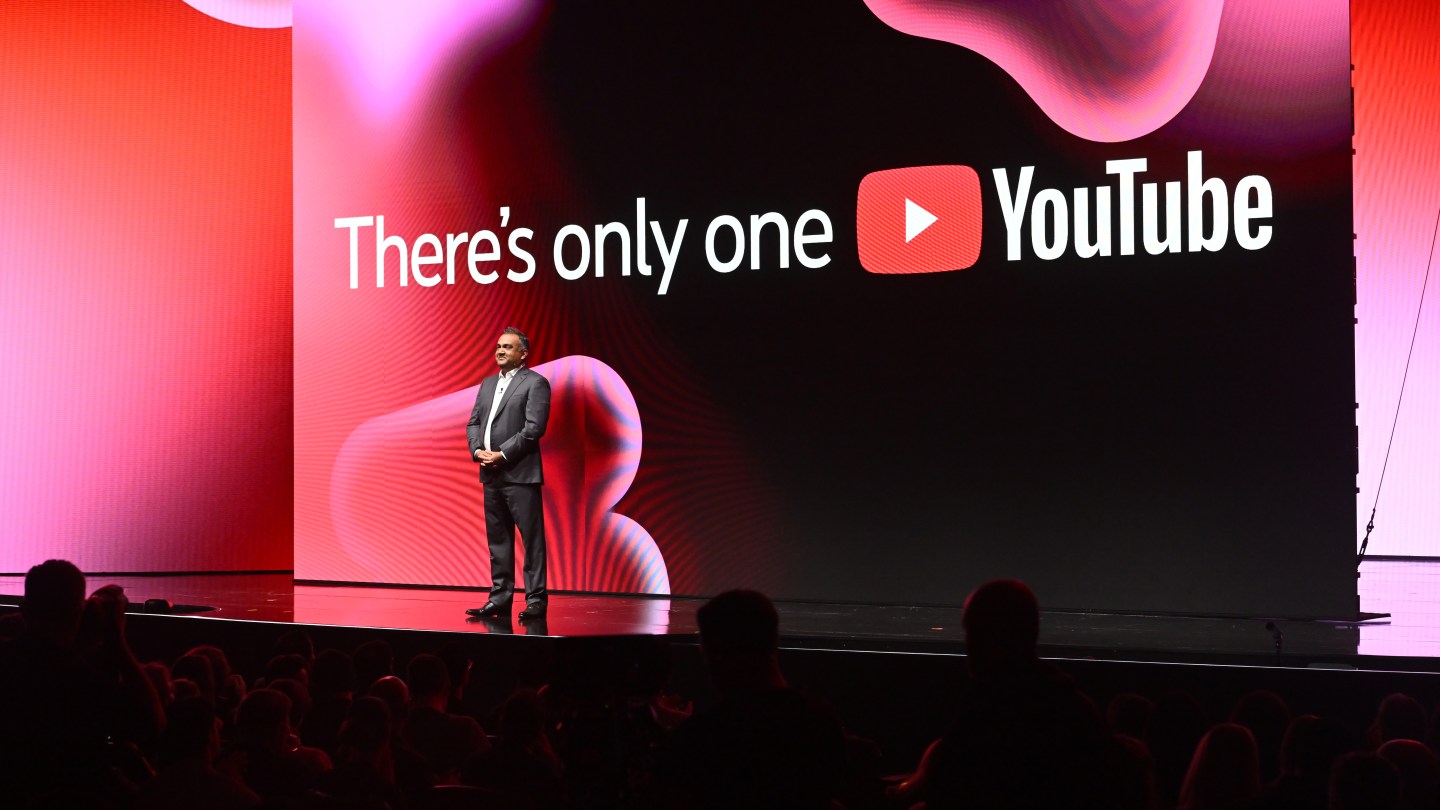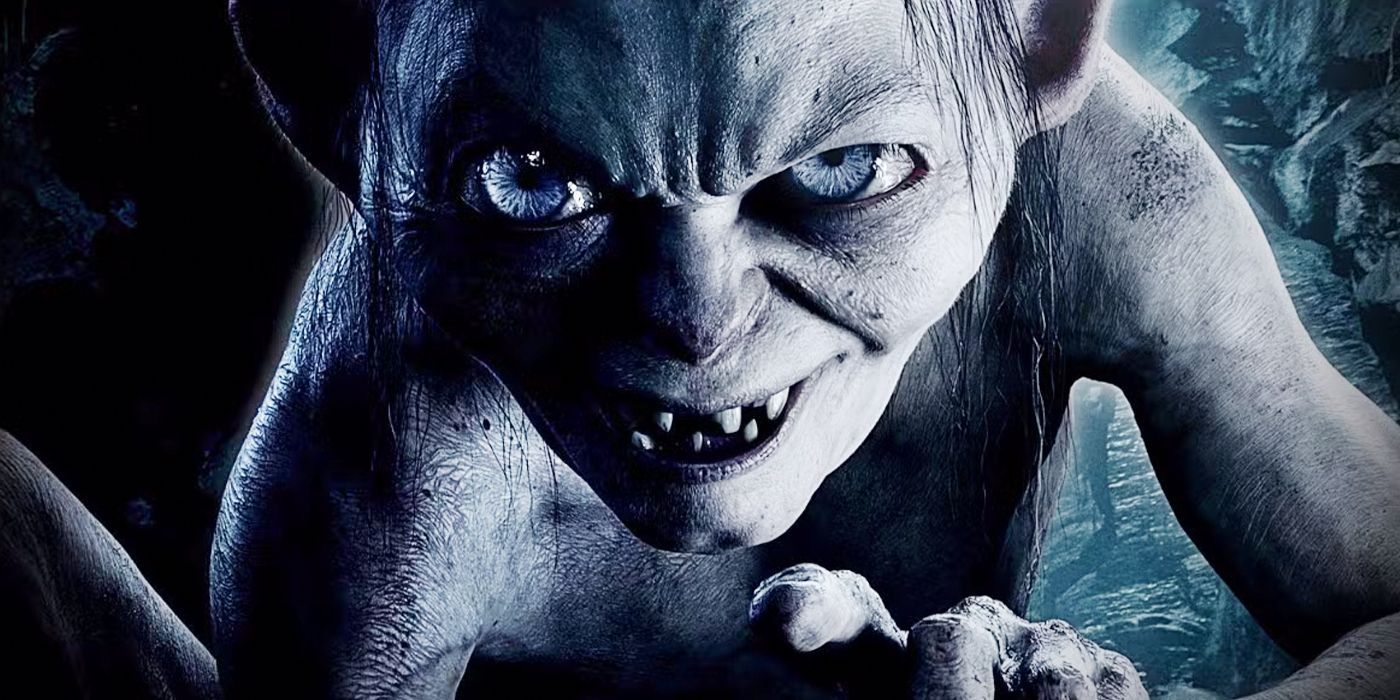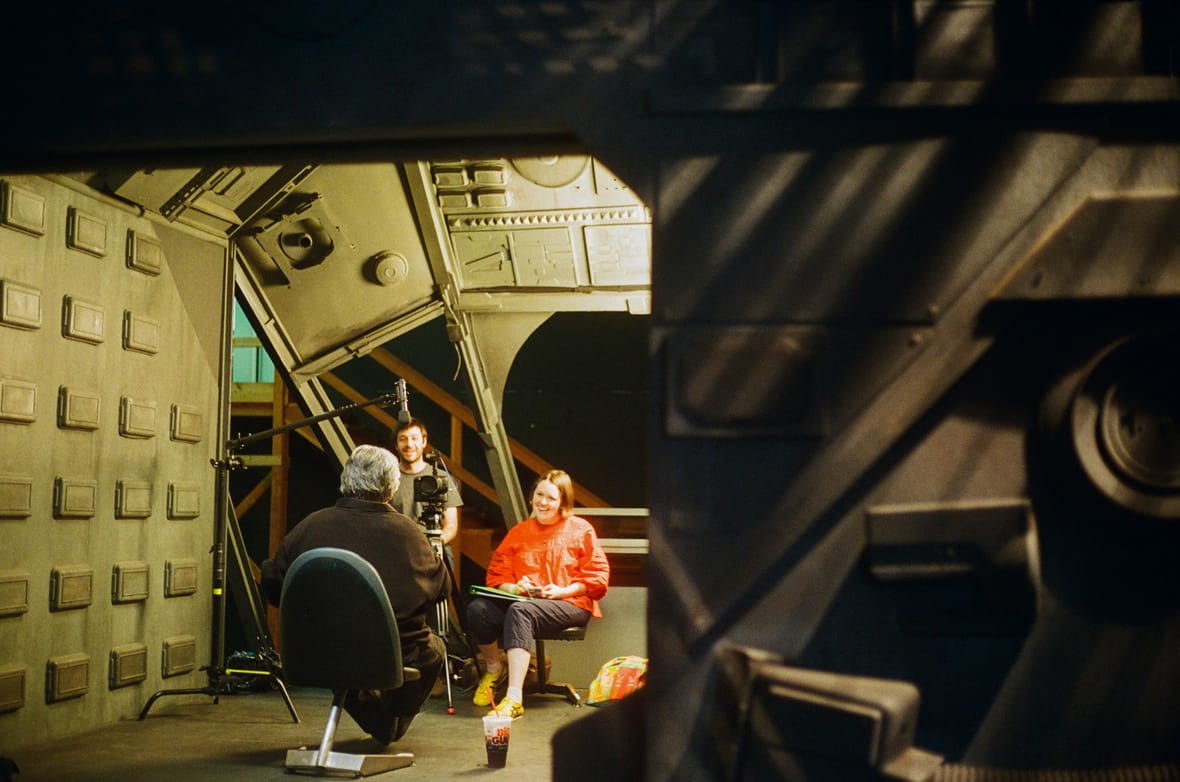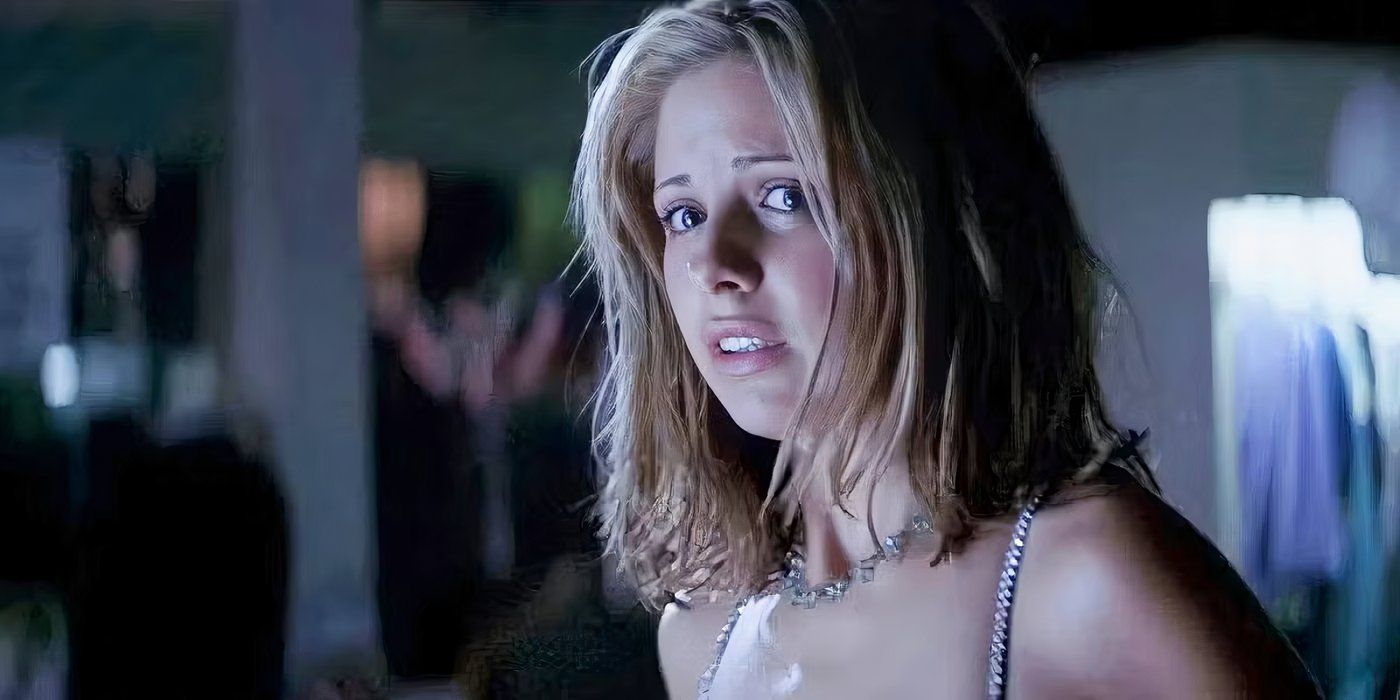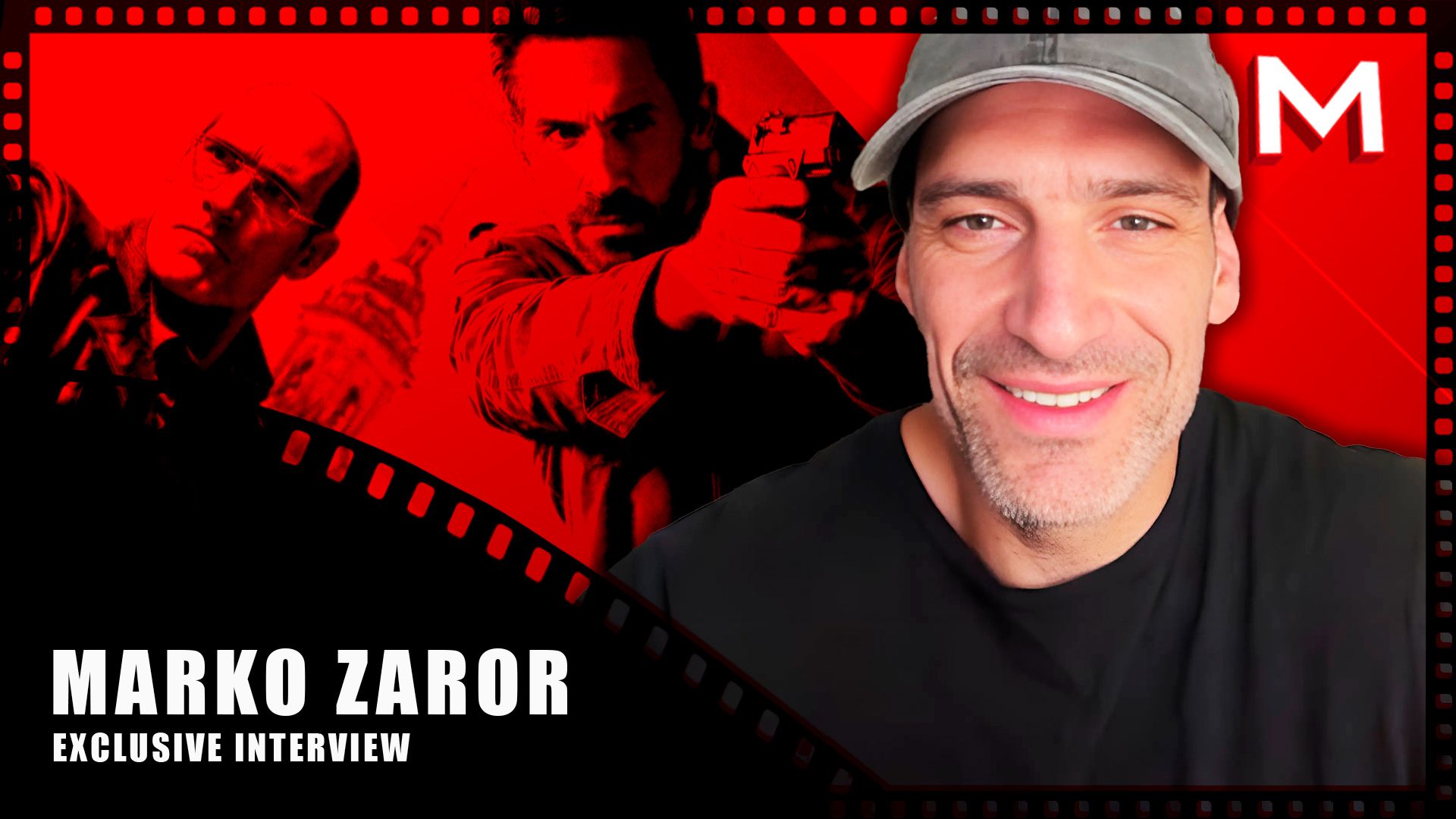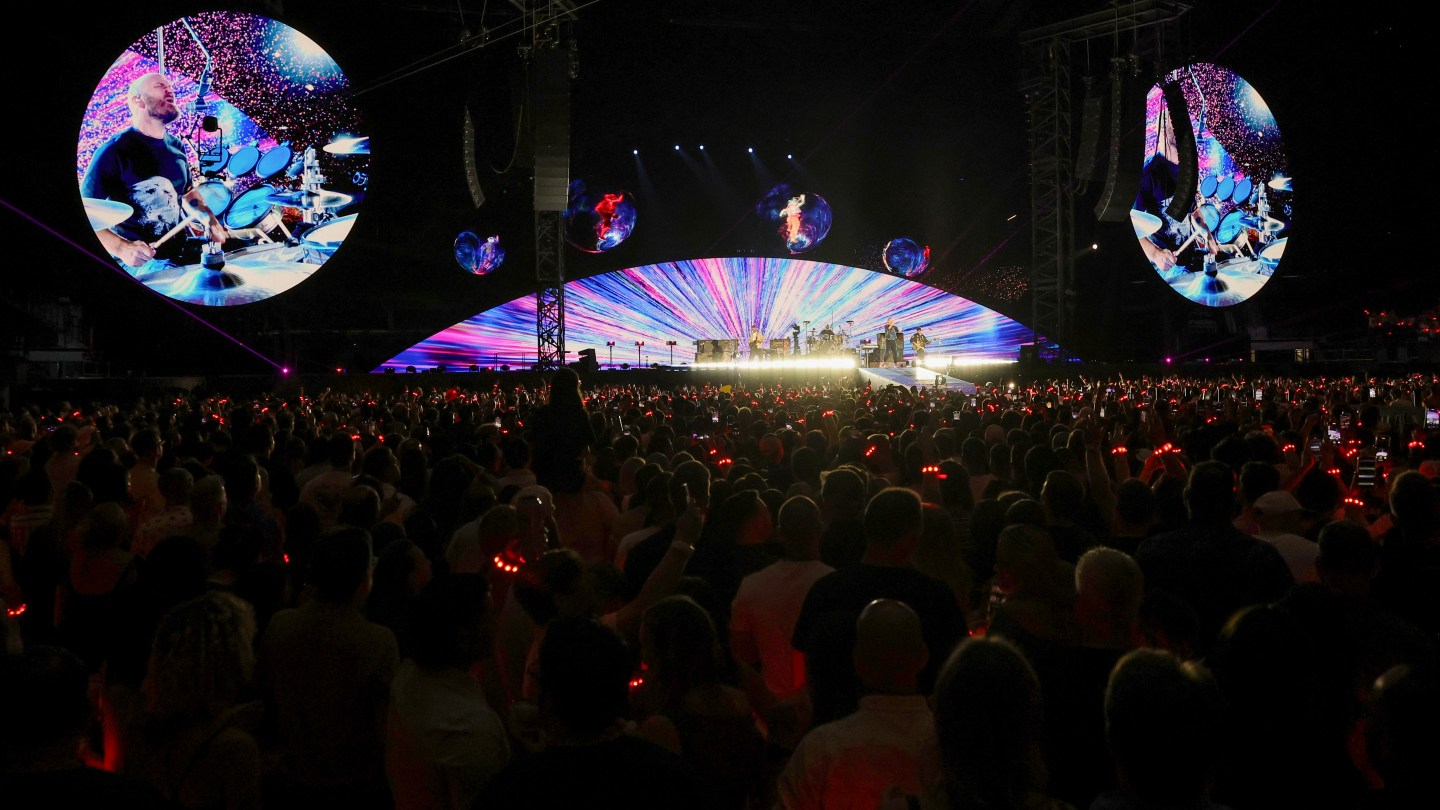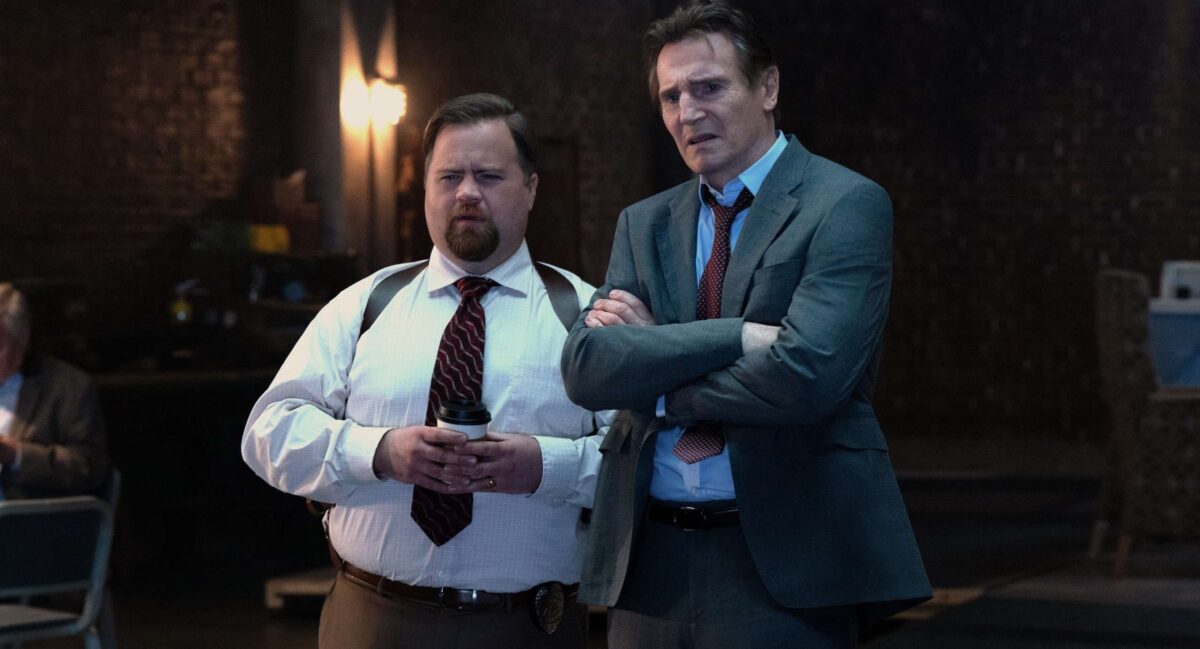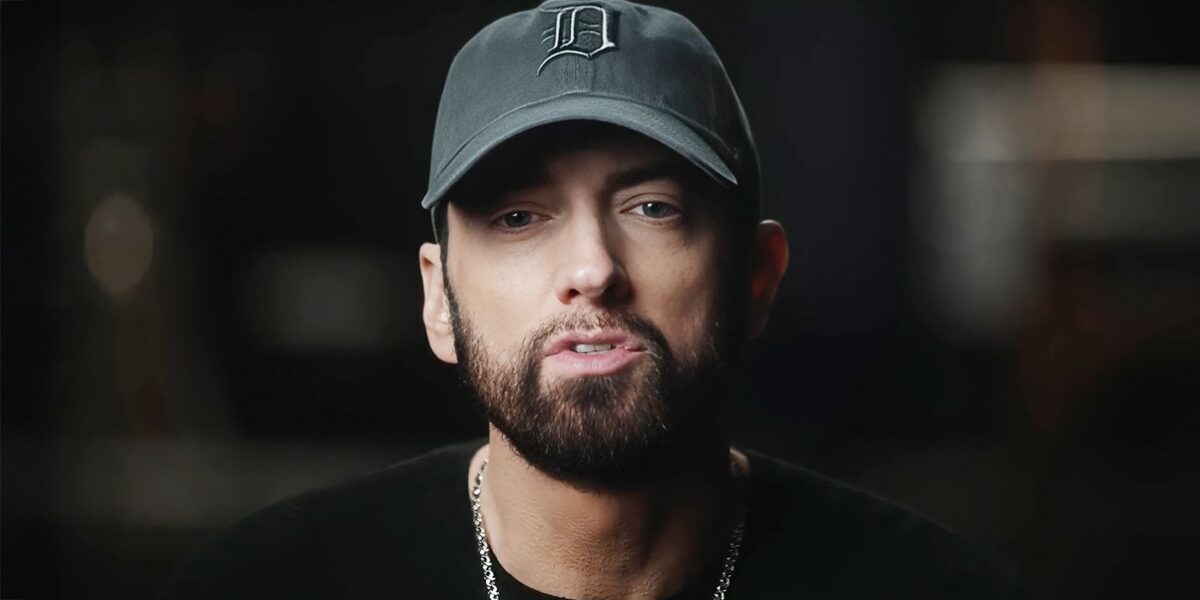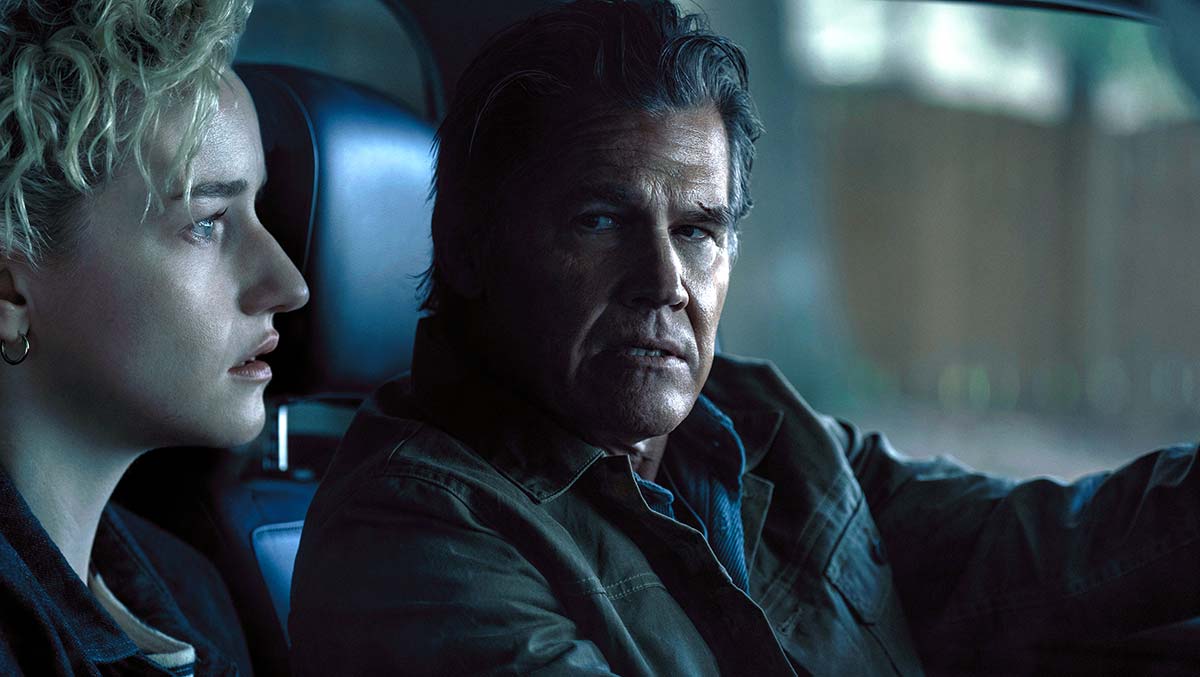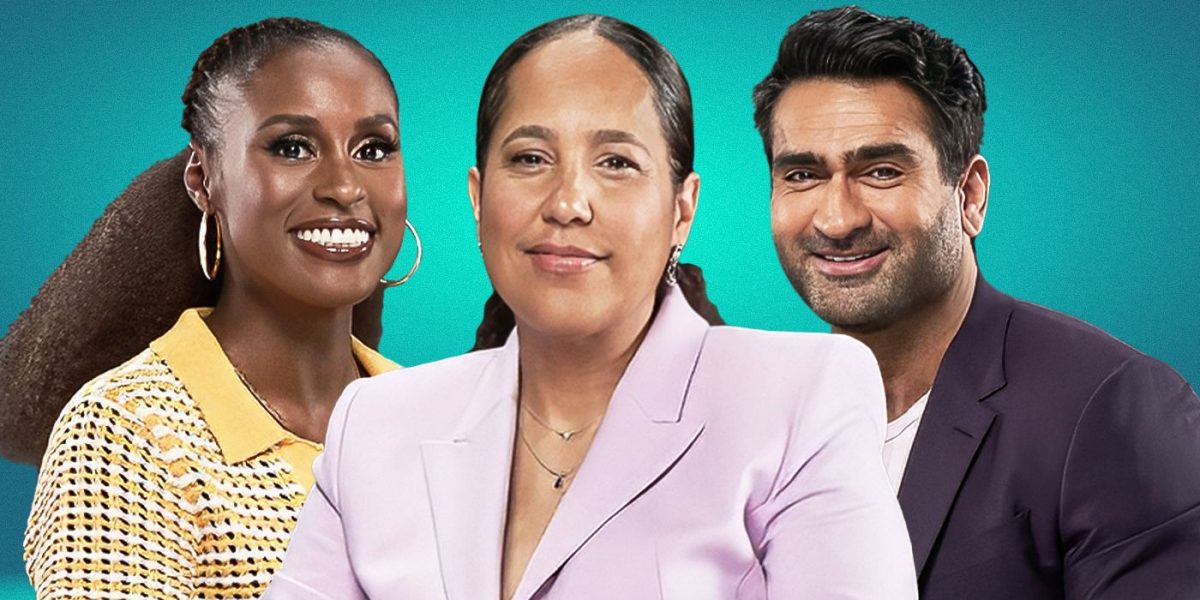
Issa Rae, Kumail Nanjiani & Gina Prince-Bythewood on ‘Project Greenlight’
Jul 15, 2023
[Editor’s note: The following contains spoilers for Project Greenlight.]Project Greenlight is back with a focus specifically on the next generation of talented female filmmakers who haven’t gotten the opportunity to let their voice and vision shine by directing a feature film. Throughout the season, viewers will get a look at aspects of the filmmaking process from start to finish, with the triumphs and frustrations that come along with juggling staffing, casting, financing and production, while also having cameras document everything along the way.
During this interview with Collider prior to the SAG-AFTRA strike, executive producers and series mentors Issa Rae, Kumail Nanjiani and Gina Prince-Bythewood talk about bringing Project Greenlight back, why they wanted to impart their knowledge and mentor the winning filmmaker, working with winning filmmaker Meko Winbush (whose finished film Gray Matter is available at Max, along with the series), and what they learned and want to be sure to implement for possible future seasons. They also talked about some of their own filmmaking experiences, in regard to lessons they’ve learned, how to stay motivated when things don’t always go the way that you hope they will, the reality of being a female director in a still male-dominated industry, and the importance of fighting for your vision.
Collider: This season was so fascinating to watch because we really get to see the ups and downs that can happen with making a movie. Issa, what made you want to bring Project Greenlight back now? Why did this feel like the right time? What was it about the show that made you want to put your name on it?
ISSA RAE: I watched it back in the day, and never even had the thought that I could bring it back, until our executive on the series, Montrel [McKay], was like, “We should bring back Project Greenlight. It’s already in the ethos of what the company does. We’ve been doing it on a smaller scale, so let’s use HBO to do it.” Luckily HBO/Max were super excited about bringing it back, and especially excited at the prospect of Kumail [Nanjiani] and Gina [Prince-Bythewood] being a part of it. It was just as simple as that.
Image via Max
Issa, it’s easy to see why you would want Kumail and Gina to be involved. But for you guys, when Issa brought this idea to you guys, what was your reaction to bringing Project Greenlight back? Does it just excite you to get involved with imparting your knowledge to up-and-coming storytellers?
GINA PRINCE-BYTHEWOOD: I remember reading the announcement that Issa was rebooting it and I thought to myself, “That is really cool.” And then, to get the call that they wanted me to come aboard, it was just exciting to me because I used to watch the show so much. It used to fascinate me, as a filmmaker, and then as an audience member. So, to now be a part of that, and the fact that they were gonna focus on female directors, I just thought this was an opportunity, not only to be a part of this and to work with these two, but also, part of what I do anyway is to help bring up younger filmmakers. To be able to do that on this really big scale made it an easy yes.
KUMAIL NANJIANI: Yeah, it was an easy yes for me, too. I was excited to work with Issa and Gina. If they ever ask me to do anything, I’m always gonna say yes. I just wanted to work with them and learn from them. Issa and I have worked together before (on The Lovebirds), and that was a wonderful experience. And then, I just love movies, and I love movie making, and I love being on set. It’s so much easier to give someone else advice than to take it yourself. It’s easier to help other people. I can read someone else’s script and be like, “Oh, this is what you need to do to fix it. I don’t know if I’m right, but I’m very confident about it.” But with my own script, I’m like, “I have no idea. This is awful.” It’s just so much easier to give notes to someone else. I just love all parts of the process. The idea of giving a shot to a director who’d never had this kind of shot before was very exciting.
In my mind, when I watch something like this, I figure three really talented, creative, successful people hanging out together meant that you got to the end of this season with ideas for projects that you’ll be doing together. Will we hear abut another movie with Issa and Kumail, that Gina can direct this time?
NANJIANI: I’m in.
RAE: I think Gina should be on camera for this. I think it should be directed, written by and starring Gina Prince-Bythewood. I would happily be a part of that. But now, there’s nothing right now. I’d love to do this again, and continue to find other female filmmakers.
Image via Max
What would you guys say is an important lesson that each of you have learned about this business that seems invaluable to you now, but that you might not have been able to receive or been open to hearing, early on in your career?
NANJIANI: I have a lesson from my wife, Emily [V. Gordon]. I can’t quote her directly because she has put it in a very filthy term. But I think the hardest thing to negotiate about this business, and what I’m saying is not profound, is that there are two different sides to the business, that are very diametrically opposite, and they need to find a way to work together. For half the people, it is a business. They need to make money, and that is very valid. And then, for the other half, it really is such a personal expression of creativity and vulnerability. You have these two completely different goals that need to align. The biggest challenge, if you’re in a position where you’re lucky enough to be hired and working on something, is finding a way to work with the people who are giving you the money for it, in a way that doesn’t sacrifice your own vision for it. That, by far, is the hardest thing. It’s definitely something that I think about it a lot.
PRINCE-BYTHEWOOD: Vision is everything. It’s just fascinating to me, when you write something, or you come aboard something, and you have a vision for it and that’s why you’re there, but as you go through the process, it seems like so many people are trying to chip away at that. For me, the thing I impart more than anything is stay true to your vision and fight for your vision because that’s the North Star. That’s gonna determine whether this thing is good or not. You have to be able to sit in the theater and look up on that screen and believe everything up there. If you don’t, then something went wrong. But coupled with that is that, as a filmmaker, if you’re gonna fight for that vision, then you need to put in the work and make sure that the work is good. You’ve gotta outwork everybody and really have the stamina to just do your best, so that when you’re fighting for a vision, it’s a good vision.
RAE: When I was younger and breaking into this industry, sometimes you see one name that’s prominent and that’s heralded. For me, coming up, I was very much like, “You have to do it all on your own, and you have to get that credit for it. It has to be you.” I fought so hard for that, and the glory of that, because I thought that was more respected in the industry. Over time, that’s shifted away because I do need help. This is a very collaborative process, and other people don’t necessarily get the glory of that, but it’s so important for that to be acknowledged. To Gina’s point, it’s extremely important for me to be solid in my vision, but it’s okay if I’m not writing everything for a show, or if I didn’t come up with this particular idea that made it significantly better. There is an auteur credit situation that just suffocates people and that boosts their egos in a way that makes Hollywood insufferable. If you had told younger me that that was a problem, I would have been like, “Whatever, I’m about to be the one.” Now, I can’t stand those type of people.
PRINCE-BYTHEWOOD: Issa hates me.
RAE: You? Come on! Never that.
Issa, the disappointing end of A Black Lady Sketch Show and, even before that, the end of Insecure, got me thinking about, whether the end of a project is your choice to move on, or if it’s because of cancellation, or it’s just where the story ends, every project ends and it doesn’t always willingly end. What advice would you give new and up-and-coming filmmakers and creatives who get discouraged by things not turning out how they hoped, or being ended in a way that they maybe didn’t plan? How do you stay focused and keep moving forward and doing it again?
RAE: Oh, what a great question. As someone who’s lived through both, and who’s willingly ended one, even for Insecure, the first season, we were encouraged to write like we weren’t gonna get another season. I remember, the first half of the season, we were like, “Oh, let’s save this for Season 2. They’re not gonna believe this.” And then, the more we started getting notes, we were like, “What if we don’t wait? This is not guaranteed. Let’s just put it all in there.” Of course, as time went on and we found our voice as a show, I knew that I wanted to end the show after five seasons. With something like A Black Lady Sketch Show, that was Robin [Thede]’s entire vision. With her, she’s just so dedicated to what she’s doing, and there are so many things changing at Max and Warner, and that was such an amicable decision between the two of them, to let that go. But I guess my advice would just be the advice that I don’t take on my own. Just take it gracefully and move on. For me, one of the shows, in particular, that has been canceled, I’m not taking no for an answer. I’m like, “No? What’s that? Who else is out there? They’ve changed? Oh, that person got fired and they’re the one that said no, and now this other person has come in, so let’s figure it out.” Also, my irons are all in that fire. It’s always really, really important to just have more than one thing that you’re passionate about and you’re dedicated to, that you’re willing to put everything on the line for.
Image via Max
Gina, we hear a lot about how male directors can fail spectacularly at the box office and still get work, and often with big projects, but female directors have one project that falls short and are often never heard from again. Being a woman, and being a Black woman, is that something that’s been on your mind, at any point in your career? Is that something that you just refuse to buy into? How do you get past that?
PRINCE-BYTHEWOOD: For me, it’s absolutely true. It’s just a reality. It’s top of mind, every time I take on a project. I think the pressure for us is much greater because of that, but not only just for our careers, but the way that the industry works is, if one of us fails, then suddenly that’s reflective of a bunch of us. That’s obviously completely unfair, but you feel that, so you can either embrace that incredible pressure, or let it crush you. I choose to embrace it and let it fuel me to work harder. I know that the more success I have is gonna open more doors. That’s the beauty of it. When you have a cause bigger than yourself, it helps to deal with that pressure. And surround yourself with really great people who believe in you, and who believe in the vision, and who believe in bringing others up, so that it doesn’t feel as lonely as it can get sometimes.
RAE: Can I also just add that, during the promo tour for Barbie, Greta [Gerwig] was talking about of the pressure that she’s feeling now, for the movie to do well. She was talking about being part of a six-woman club, who have had $100 million or more movies. It’s Gina, it’s Ava [DuVernay], and it’s three other white women. Sorry, I can’t name them all right now. She was articulating that this is a pressure that she feels, and being able to name the other five women, it’s fucked up. She talked about Wonder Woman . . .
PRINCE-BYTHEWOOD: That’s Patty [Jenkins] . . .
RAE: . . . and how Barbie would exist without Wonder Woman. That was so interesting to me. You have to be hyper-aware of who’s come before you, but then it’s dependent on you who’s gonna come after you is, which is crazy. Male filmmakers don’t have to do that.
That’s why it’s insane to hear that Project Greenlight has never had a female director, especially when you see the talent pool that you guys have. I want to follow what all of those women do in the future now. With all the times we hear that there just aren’t enough women directors out there, were you guys surprised to find so many?
RAE: Surprised? No.
PRINCE-BYTHEWOOD: We are fortunate to be in a space where these filmmakers and their great short films, or their first films, or their scripts, are coming to us, so we know they’re out there. The beauty, though, is to be in positions now where we can help amplify those voices. Like Issa said, I hope that this show can keep going. It was a really hard decision, and even though we love Meko [Winbush], and Meko was our choice, there were a couple of women who I would love to see what they would have done with this material, as well. So, absolutely, let’s keep this going.
NANJIANI: I wanna say that I wasn’t surprised that there are a lot of talented filmmakers, but there are also a lot of talented actors. If you’re ever in a position where you’re auditioning people, you see how many fantastic actors there are, who you’ve never heard of before and who haven’t gotten that chance yet. It’s really inspiring, and it’s also, in some ways, a little disheartening. When you’re casting something for parts, there are lists of names that the studio wants, with the people who can get you more money and the people who won’t get the film made. I’ve been in positions where we’ve had to cast people who I knew weren’t the best for the role because the person who was best for the role wouldn’t get the project funded. It’s complicated. Breaking in is the hardest thing. There’s a lot of fantastic, exciting talent out there, that people haven’t seen yet.
Image via Max
It’s so interesting to see all the areas of production, throughout this season. For each of you, from where you started with picking Meko, to then finally getting to the final cut of her film, how different did the finished film and your reaction to it feel than what you thought it might have been, before it ever started filming?
RAE: It’s tough because you wanna pick an amazing filmmaker and give this person an opportunity, and you also wanna make a great movie. That was the biggest goal. We wanted to make a great film. It’s hard to do all of those things in 18 days, with such a small amount of prep time. And we chose a genre film. So, candidly, there were moments where it was just like, “I don’t know if this is gonna be at the caliber that I wanted it to be.” Speaking for myself, I just had such a high bar, to not only make the best Project Greenlight film ever, but just a great film that people wanted to see. That came from also wanting Meko to have all these other opportunities. But there are so many things that we have to consider, in terms of timing and budget. There were so many lessons that I learned, just in terms of hopefully never setting someone up for failure, but also trying to make sure that they’re giving the best that they can give and they’re aware of where this opportunity can take them.
Kumail, as someone who also has that writing perspective, what was it like for you to see how this developed? When you watched the film, did you think about what you might have done with it?
NANJIANI: Yeah, but it’s not about things I might have done. It’s about supporting Meko’s vision for it. It’s her movie. My job is not to impose my ideas on her. My job is to try to support her realizing her own ideas. It’s hard. As an actor, you’re cast in stuff and you truly have no control over how something’s gonna turn out. I’ve learned, over the years, to try to not have any expectations about how something is gonna come out because it’s so hard to know. To make a great movie, everything has to go right. To make a terrible movie, one thing has to go wrong. I try not to think too far ahead like that. You just do the best you can right now. The movie changes so much. The script changes. When you shoot it, that’s completely different. And then, when you edit it, it’s completely different. All you can do is just do the best job of the task you have at hand. Although, my theory on this is not going to be as useful or profound as Gina’s. She’s made so many wonderful movies that I’m curious to hear how she approaches that. They say the movie changes at every step of the process, so how do you negotiate that with the vision you have in your head of how you want it to turn out?
PRINCE-BYTHEWOOD: The basic thing that we all know is that it all starts with the script. You have to have a good script. Given the time, there wasn’t enough time to get the script right before she started shooting, but also, we were under the impression that she is a writer/director and that there was work that was going to be done. I’m just putting it in the ether, but when we do this again, I think that we will all make sure that the script is tight, before putting someone through this. As Issa said, making a film in 18 days, for anybody, is tough. We all wanted this to be a great film. That was the goal. There should be no other goal in what we do. It should be greatness. We want to give people the tools to succeed, and they have to put in the work, as well. The hope of what this could be, all comes back to knowing that the next time we do this, we’re gonna make sure the script is tight.
Image via Max
Gina, it’s so interesting that we get to see glimpses of your post-production process for The Woman King while this season is happening. When it comes to transforming what you’ve shot into what an audience will eventually see, how do you know when it’s done and it’s ready? Are you someone who ever truly feels that? Do you never feel that? Do you always feel like you could go back and tweak or change things from your movies?
PRINCE-BYTHEWOOD: Actually, no, which is a good thing. If you’re watching that end product and what’s been put in the world is something that you wanna change, then something went wrong in the process. I take great pride in the thing that I wrote is what’s up on-screen and it’s not dramatically different. I know some people like to say that there are three versions of the film – what you write, what you shoot, and what you edit. They should not be three different films. You have a vision and an intent in the beginning, and you want your film, at the end, to reflect that, which is why I spend so much time on my scripts. I spend years on them, to make sure that happens. That’s why I feel bad about what happened with this. I just want to impart that, to put the time into your scripts, so that your final film is reflective of that, and then fight like hell to protect the vision, during each step of the process, so that what is up on-screen is your vision and your legacy. That’s what we’re all left with. That’s what we’re doing this for.
NANJIANI: One of the worst feelings is shooting a scene on set that you know could have been written better, for whatever reason. That’s a horrible feeling. Sometimes it’s exciting because you’re like, “Okay, how do we fix it?” But Gina is exactly right, if you don’t have a good script, you’re never gonna have a good movie.
Issa, you were just shaking your head at that.
RAE: Because he said it was exciting to shoot those scenes.
NANJIANI: No, it’s not. I was just trying to find a silver lining. It sucks. There’s nothing better than doing a scene and being like, “Wow, that scene was great. Let’s do it exactly like that.”
Project Greenlight is available to stream at Max, as well as the movie Gray Matter.
Publisher: Source link
Bringing Fresh Life to a Classic Spoof Series
After more than thirty years since Naked Gun 33⅓: The Final Insult (1994), director Akiva Schaffer (Chip ’n Dale: Rescue Rangers, Popstar: Never Stop Never Stopping) resurrects one of comedy’s most absurd and beloved film franchises with The Naked Gun…
Aug 11, 2025
This New Documentary Is a Dark Look at Fame, Fandom, and the Career of Eminem
Fandom is a tale as old as time. For as long as there have been artists, creatives and leaders of any sort, there have been people who admired them and looked to them for guidance on how to live their…
Aug 11, 2025
Zach Creeger Drops Mass Destruction Bombs Of Creepy Terror In Spine-Chilling New Horror
Electric, terrifying and hypnotically creepy af, writer/director Zach Creeger’s latest psychological horror, “Weapons,” dips its toe into the unknowable on many levels. Who are your neighbors? Who are the people in your community? And how can you properly articulate the…
Aug 10, 2025
Buckley’s Life Is Put On Display, Only For The Documentary To Fail To Capture Him
It's Never Over, Jeff Buckley never lets us forget that the man, the myth, and the subject of this documentary, Jeff Buckley, was an unknowable enigma. The feature-length exploration of his too-short life ultimately fails to understand him, despite its…
Aug 10, 2025
